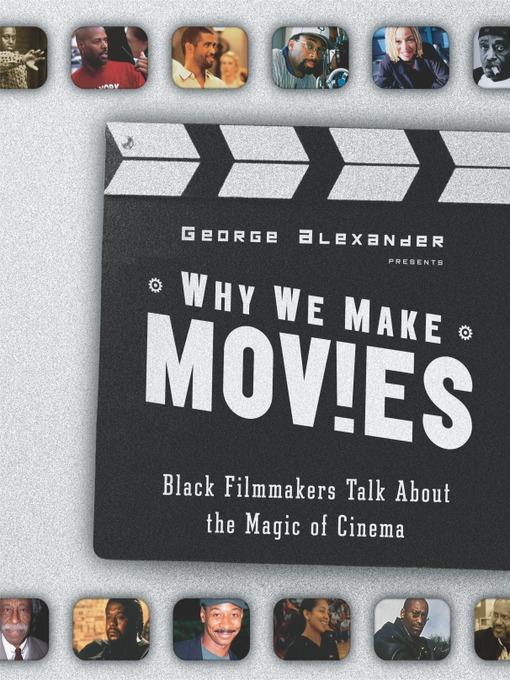
Why We Make Movies
Black Filmmakers Talk About the Magic of Cinema
کتاب های مرتبط
- اطلاعات
- نقد و بررسی
- دیدگاه کاربران
نقد و بررسی

February 1, 2003
This informative collection of interviews with more than 35 African-American filmmakers surveys the current field of mass market director/producers and documentarians working in both Hollywood and the independent arena. Appropriately, the book begins with an interview with Renaissance man Gordon Parks; the actor/director explains his difficulties as a first-time director on The Learning Tree, adding that his training as a top-rated photographer influenced his choices and compositional approach behind the camera. Journalist Alexander's questions invite a torrent of insightful answers from each of his subjects. The multitalented Melvin Van Peebles recounts his piloting Sweet Sweetback, the controversial film that brought him instant fame. His story is one of determination, ingenuity and bravado in overcoming racial barriers. Actor/director/social activist Ossie Davis recalls when movie mogul Sam Goldwyn tapped him to direct Chester Himes's Cotton Comes to Harlem, presenting him with a challenge that stretched his imagination. The taboo on interracial romance in film, with black men and white women, gets a harsh rebuke from former football star and director Fred Williamson. In director Spike Lee's interview, he credits much of his success to perfect timing, and laments the lack of blacks in decision-making posts at the studios. Producer Lee Daniels (Monster's Ball) defends Halle Berry's Oscar win for her performance, despite the furor over her sex scenes. In all, this is a worthy addition to the reference shelf of anyone with an interest in film or African-American culture.

April 1, 2003
Here, 33 commercial and documentary African American filmmakers, obviously infected with their interviewer's unbounded enthusiasm, provide candid, in-depth answers to a host of incisive questions about movie making. Highlights include opinions from Ossie Davis (Cotton Comes to Harlem): "I still think the whole Oscar setup is bullshit, but I think that if you're going to have bullshit, at least have equal-rights bullshit"; advice from John Singleton (Boyz N the Hood): "Write your own scripts. That's the cheapest way to learn how to make a movie"; background from Bill Duke (A Rage in Harlem), whose family couldn't afford to see movies so they'd stake out downtown Poughkeepsie, NY, with a bag of popcorn and make up stories about Main Street passersby; and revelation from Keenan Ivory Wayans (Scary Movie): "Movies are a magical two-hour experience but that's all they are." Alexander, a film and pop culture lecturer, prefaces each interview with a substantive introduction and concludes the book with a useful filmography of the subjects' directing, writing, and producing efforts. Because this is so entertaining and informative, one can forgive the author's frequent hyperbole and recommend it for most libraries.-Kim Holston, American Inst. for Chartered Property Casualty Underwriters, Malvern, PA
Copyright 2003 Library Journal, LLC Used with permission.

























دیدگاه کاربران